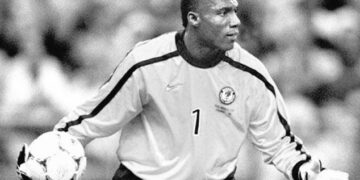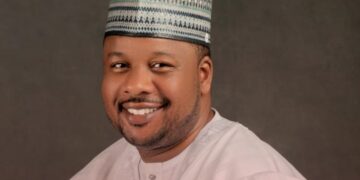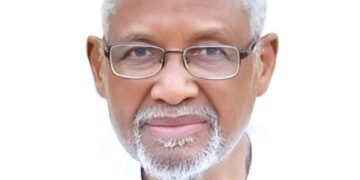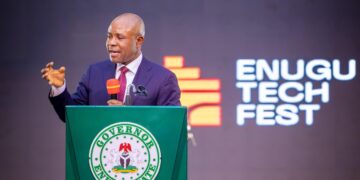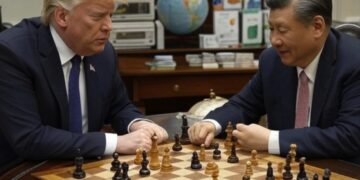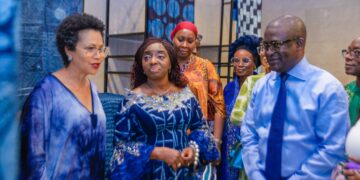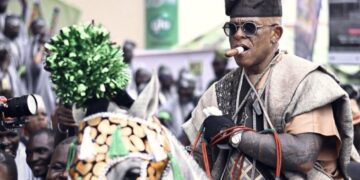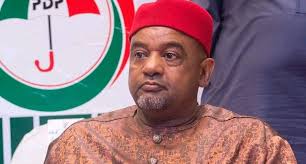As Nigeria gears up for the 2027 elections, a growing number of northern political figures are signaling a potential push for former President Goodluck Jonathan to return to Aso Rock. This strategic move aims to challenge President Bola Ahmed Tinubu’s re-election bid and ensure the completion of a southern presidency, aligning with Nigeria’s informal North-South power rotation principle. The “May push” reflects dissatisfaction with Tinubu’s leadership and a calculated northern strategy to regain political control by 2031, though it faces significant obstacles given Nigeria’s polarized politics and Jonathan’s apparent disinterest in active politics.
The Case for Jonathan’s Return
Northern leaders view Jonathan as a “compromise candidate” who could consolidate opposition forces while adhering to the zoning arrangement favoring southern leadership until 2031. Constitutionally limited to a single four-year term if he returns, Jonathan is an appealing choice for northern strategists eager to ensure power rotates back to the North in 2031. The push for his candidacy is driven by widespread frustration with Tinubu’s administration, marked by economic challenges, insecurity, and perceived northern marginalization in key appointments.
Posts on X capture the sentiment that Jonathan’s experience and cross-regional appeal could make him a strong contender. Influential northern figures, reportedly including former Vice President Atiku Abubakar and ex-Kaduna governor Nasir el-Rufai, are said to be in early discussions to build a coalition around Jonathan, leveraging his image as a unifier.
Why Jonathan Over Tinubu?
The “May push” for Jonathan is fueled by discontent with Tinubu’s policies, notably the removal of fuel subsidies and foreign exchange reforms, which have deepened Nigeria’s cost-of-living crisis. Northern critics highlight exclusion from major policy decisions and ongoing security challenges as key grievances. A source cited in the Nigerian Tribune suggested that northern elites see Jonathan’s candidacy as a way to “counter Tinubu’s dominance” without ceding long-term influence.
Jonathan’s appeal lies in his reputation as a conciliatory leader and his post-presidency role as a regional statesman, particularly as head of the ECOWAS Mediation Team to Mali. His presidency (2010–2015), though criticized for inefficiencies, is recalled by some as a period of relative stability compared to current economic woes. Supporters argue that his return could fulfill a “truncated southern presidency,” especially for the South-South, while preserving Nigeria’s delicate power balance.
Historical Context and Northern Strategy
The idea of Jonathan’s return has historical roots. In 2021, reports emerged that northern APC governors considered backing Jonathan for a single term in 2023 to block Tinubu and Vice President Yemi Osinbajo, ensuring northern succession in 2027. Though Jonathan dismissed these speculations, his frequent visits to Aso Rock under Tinubu have reignited rumors of a political comeback.
The northern “May push” aims to exploit divisions within the APC and unite opposition parties like the Peoples Democratic Party (PDP) and Labour Party (LP). However, the PDP’s official stance denying formal outreach to Jonathan, alongside statements from his wife, Patience, that he has no political ambitions, casts doubt on the plan’s feasibility.
Challenges to the Push
The “May push” for Jonathan faces formidable challenges. Jonathan has consistently prioritized his role as an elder statesman, focusing on continental diplomacy over domestic politics. Tinubu, as an incumbent, wields significant advantages, including control of the APC’s machinery, substantial financial resources, and a strong South-West base. His administration is actively courting the South-South and South-East to strengthen his re-election prospects.
Additionally, Nigeria’s electoral landscape often favors incumbents due to systemic issues. The APC’s North-Central Forum has already endorsed Tinubu for a second term, citing his infrastructure and security efforts, revealing splits within the North. These factors, combined with Jonathan’s reluctance, make the northern “May push” a high-stakes gamble with uncertain prospects.



